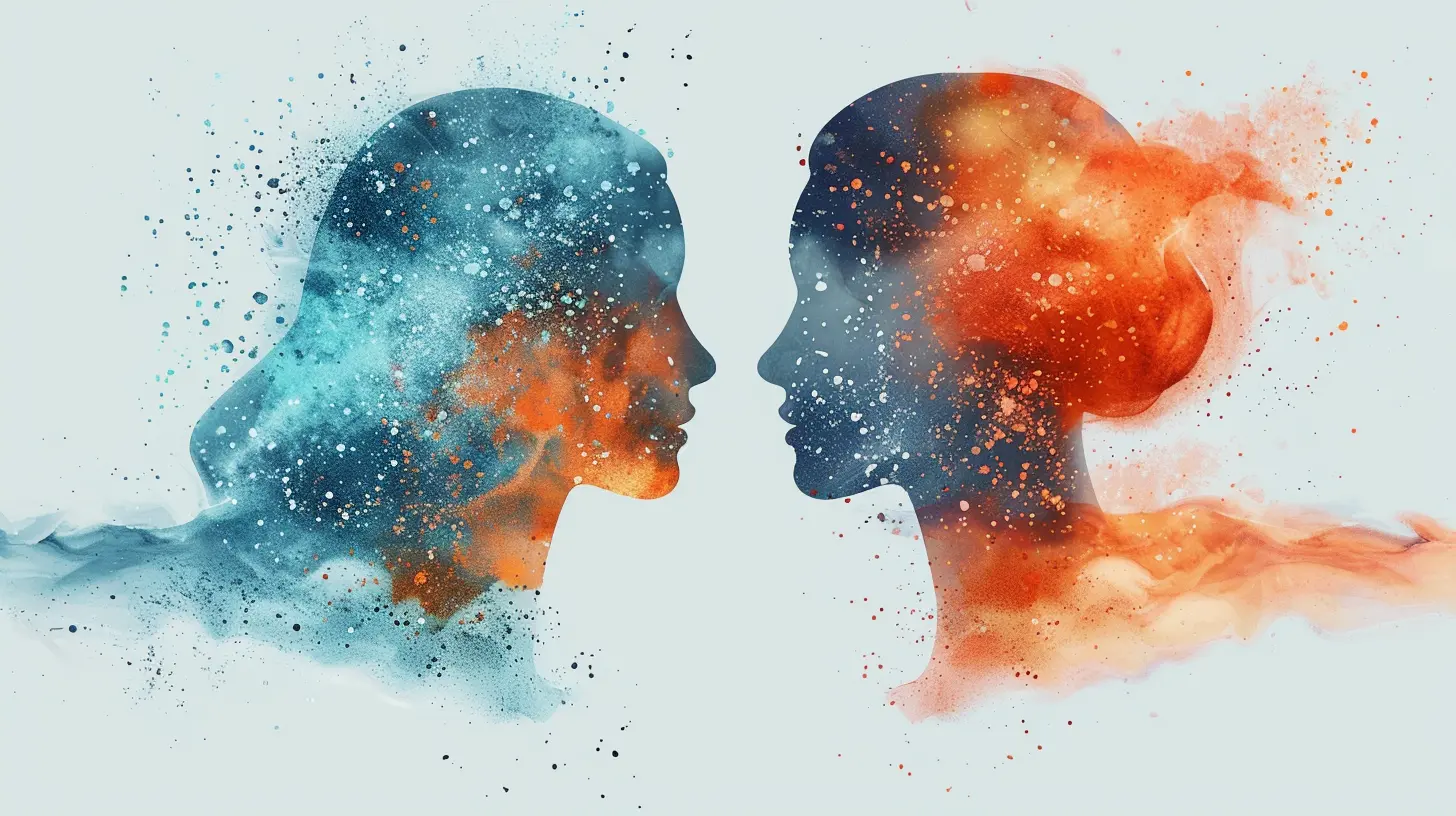The Importance of Social Support in Recovery from Mental Illness
5 November 2025
The Healing Power of Connection
Imagine walking through a dark tunnel, lost and unsure if there's light at the end. Now, picture a warm hand reaching out, guiding you through the darkness. That hand? It’s social support.
Mental illness can be isolating, a lonely road where doubts and despair whisper relentlessly. But no one should have to walk that path alone. Friends, family, or even a kind stranger can become a beacon of hope, a reminder that healing isn’t just about treatment—it’s about connection.

Why Social Support Matters in Mental Health Recovery
Ever heard the saying, "No man is an island"? It's especially true when it comes to battling mental illness. Recovery isn't just about medication or therapy; it's about feeling understood, accepted, and valued.Social support acts like a safety net, catching us when we stumble. It provides encouragement on tough days and celebrates small victories on good ones. But how, exactly, does it help? Let’s dive in.
1. Emotional Anchor in Stormy Seas
When depression or anxiety hits, it can feel like drowning in an ocean of endless thoughts. A strong support system acts as an anchor, keeping us steady even when the waves get rough.- A friend’s reassuring words
- A family member’s comforting hug
- A therapist's gentle encouragement
These small acts remind us that we’re not alone, that our struggles are seen and acknowledged.
2. Validation: The Medicine of Understanding
Sometimes, the most powerful words someone can say aren’t advice or solutions but simply: "I hear you. I understand."Feeling understood is like balm to the soul. It eases the loneliness and makes the burden a little lighter. When loved ones validate our emotions, it helps us accept our struggles instead of suppressing them.
3. Motivation to Keep Going
Ever tried running a marathon alone? Pretty exhausting, right? Now, imagine having a cheering squad on the sidelines, encouraging every step. That’s what social support does for mental health recovery.Encouragement fuels resilience. When motivation fades, having someone remind us of our strength can reignite the fire within.
4. Practical Help in Tough Times
Support isn’t just about words; sometimes, it’s about actions. Simple things can make a world of difference:- A friend bringing over a meal when depression steals energy
- A loved one driving you to therapy when leaving the house feels impossible
- A co-worker offering to cover for you when anxiety is overwhelming
These acts of kindness create a sense of security, reminding us that we don’t have to do everything alone.

The Different Forms of Social Support
Support isn’t one-size-fits-all. It comes in different forms, each playing a vital role in recovery.1. Emotional Support
This is all about empathy, encouragement, and reassurance. Whether it’s a late-night heart-to-heart or a simple text saying "I’m here for you."—this kind of support offers comfort in difficult moments.2. Informational Support
When facing mental illness, knowledge is power. Support groups, therapists, and even informed friends can provide guidance on coping strategies, treatment options, and resources.3. Practical Support
Sometimes, life gets overwhelming. Having someone lend a hand with groceries, household chores, or even financial help can ease stress and allow the focus to remain on healing.4. Companionship Support
Loneliness can be a heavy burden, but having someone to simply be there—whether it’s watching a movie together or going for a walk—makes the world feel a little less empty.
Building a Strong Support System
Not everyone has a built-in support system, and that’s okay. Finding the right people takes time, but it’s worth the effort. Here’s how to build a network that uplifts you:1. Open Up to Loved Ones
It’s not always easy to talk about mental health, but sharing struggles with trusted friends or family can create deeper connections. Start small; honesty fosters support.2. Seek Professional Guidance
Therapists, support groups, and mental health organizations provide valuable support for those who may not have a strong personal network.3. Engage in Community Activities
Finding like-minded individuals through hobbies, church groups, or volunteer work can create meaningful friendships. Human connection often arises in the most unexpected places.4. Set Boundaries
Not all relationships are helpful. If someone drains your energy or makes you feel worse, it’s okay to distance yourself. Surround yourself with positivity and understanding.
The Double-Edged Sword: When Support Goes Wrong
While social support is a lifeline, not all support is good support. Sometimes, even well-meaning people can unintentionally cause harm.1. Toxic Positivity
Ever heard, "Just be happy!" or "It could be worse."? While often said with good intentions, dismissing emotions can make someone feel invalidated rather than supported.2. Judgment and Stigma
Mental health struggles are real, but not everyone gets it. If someone judges or belittles your experience, they might not be the right support for your journey.3. Dependence on One Person
Relying entirely on one person for emotional support can be overwhelming for both parties. Diversifying your support system ensures balance and prevents burnout.The Role of Online Support
In today's digital world, social support isn't limited to in-person interactions. Online communities, mental health forums, and social media groups provide a sense of belonging, especially for those who struggle with face-to-face interactions.Virtual support can be a game-changer, offering:
- Anonymous spaces to express feelings without fear of judgment
- Advice from people who truly understand the struggle
- Encouragement at any hour of the day
However, it’s essential to ensure that online spaces remain uplifting rather than amplifying negativity.
The Ripple Effect of Support
When one person receives support, they’re more likely to extend kindness to others—it’s a beautiful cycle of healing. A listening ear today can create a supportive friend tomorrow.Think of it like a candle: one flame can ignite another without losing its own light. By fostering a culture of understanding, we can create a world where no one feels alone in their struggle.
Final Thoughts
Mental illness may be a personal battle, but recovery thrives in connection. A strong support system transforms the journey from a solitary struggle into a collective path toward healing. Whether it’s a friend, family member, therapist, or even an online community, having someone to lean on makes all the difference.So, if you or someone you love is struggling, remember: You don’t have to fight alone. There’s strength in support, and hope in human connection.
all images in this post were generated using AI tools
Category:
Psychiatric DisordersAuthor:

Paulina Sanders
Discussion
rate this article
1 comments
Astranor McTiernan
Support makes recovery journey so much easier.
November 23, 2025 at 5:36 AM

Paulina Sanders
Absolutely! Social support provides crucial encouragement, understanding, and connection, making the recovery process more manageable and hopeful.


